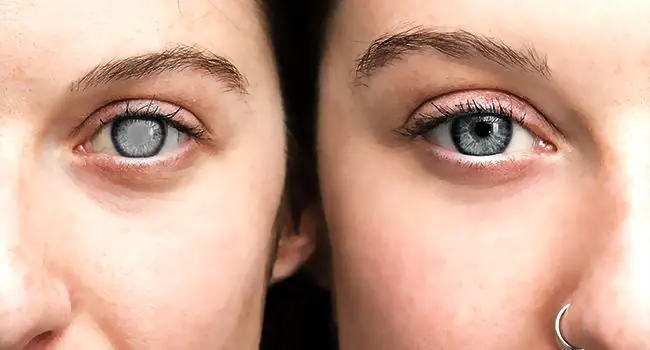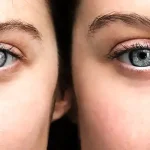Introduction:
One of the most prevalent vision issues is cataracts. Cataracts, also known as ‘Motiyabind’ in Hindi, are a condition in which the natural lens of the eyes becomes clouded which is removed through cataract surgery and substituted with artificial lens. However, post cataract care doesn’t go promptly,the cataract recovery time becomes longer or may lead to the opaque clouding.
However, if you’ve had cataract eye surgery and are concerned about recovering from cataract surgery, don’t be. Even in difficult situations, cataract eye surgery has a high success rate, and procedures are quick and straightforward to recover from. Always follow your eye surgeon’s instructions to adjust to regular life and minimize the post cataract operation recovery time.
How long does it take for eyes to settle after cataract eye surgery?
You need not worry about how long it takes for cataract surgery to heal as it varies among individuals, but at the same time it’s important to note that individual healing times can be influenced by factors such as overall health. The statistics show that the uncomplicated cataract surgery after care procedure usually takes approximately 10-15 minutes.
Patients are typically advised to follow their surgeon’s cataract post operative care instructions, which may include the use of prescription eye drops and the avoidance of activities that could strain the eyes during the initial recovery period. Follow-up appointments with the eye surgeon are also crucial to monitor progress and address any concerns. If you have specific concerns regarding recovering from cataract surgery, it’s important to discuss them with your eye surgeon.
Why Is My Vision Still Blurry After Cataract Eye Surgery?
It is normal to experience blurry vision just after cataract procedure and here are some potential reasons why your vision may still be blurry after cataract surgery:
Inflammation and Swelling: The inflammation and swelling can temporarily affect vision, and it often resolves as the eye heals.
Prescription Changes: In case your prescription changes, and your brain needs time to adjust to the new vision.
Astigmatism Correction: If you had astigmatism corrected during surgery, it might take some time for your eyes to adjust to this correction.
Underlying Eye Conditions: Pre-existing eye conditions, such as dry eye or other corneal issues, may contribute to blurry vision post-surgery.
If you are experiencing persistent blurriness or have concerns about recovering from cataract surgery, it’s important to follow up with your eye surgeon .
Post Cataract Care: Dos and Don’ts
While everyone is different, the general experience for the weeks following cataract eye surgery is progressive eye healing. Here is a list of dos and don’t s for a few months as an important integral of post cataract care guidelines.
Dos:
- Use Prescribed Eye Drops: Drops help prevent infection and control inflammation.
- Protect Your Eyes: Wear the protective eye shield or glasses to shield your eyes from dust, dirt, and bright lights.
- Attend Follow-Up Appointments: Allow your surgeon to monitor your progress and address any concerns.
- Use Sunglasses: Wear sunglasses that block ultraviolet (UV) light when outdoors to protect your eyes from UV radiation.
- Take Medications as Prescribed: If your surgeon has prescribed medications, take them as directed.
Don’ts:
- Rub Your Eyes: Rubbing your eyes can increase the risk of infection or injury.
- Expose Your Eyes to Water: Avoid getting water, soap, or shampoo directly into your eyes during the initial recovery period. This includes avoiding swimming and hot tubs.
- Drive Until Cleared: It’s important to ensure your vision is stable and meets the legal requirements for driving.
- Skip Wearing Sunglasses: Protect your eyes from UV light by wearing sunglasses outdoors, especially during the first few weeks after surgery.
Specific Things to Keep in Mind
When following post cataract care instructions, it’s necessary to keep a few important points into deep consideration when performing a few activities for a post cataract recovery time.
Outdoor Activities and Traveling by Air:
- Wear UV-protective sunglasses..
- Carry artificial tears for air travel.
Showering and Head Wash:
- Avoid water directly in your eyes.
- Use an eye shield or close eyes tightly.
Driving:
- Wear sunglasses to reduce glare.
Exercising:
- Avoid strenuous activities initially.
- Gradually resume exercise as advised.
Reading, Computer Work, Watching TV:
- Use proper lighting to reduce eye strain.
- Take breaks to rest your eyes during prolonged activities.
Foods to Eat or to Avoid Post Cataract Surgery
A healthy and balanced diet is always an important part of post cataract care. Don’t worry, for your help we have brought a list of items to keep and avoid in your meal.
Include
- Protein-rich foods: Protein provides the amino acids needed to regenerate eye tissue and aid in the healing process. This includes fish, chicken, turkey, eggs, tofu, and legumes.
- Vitamin C-rich foods: Foods high in vitamin C, such as citrus fruits, berries, kiwi, broccoli, and red peppers, can help reduce inflammation.
- Green leafy vegetables: Spinach, kale, and collard greens, have high amounts of lutein and zeaxanthin, which are the main dietary found in the human retina.
- Zinc-rich foods: Zinc helps in wound healing, immune function, and vision health.
- Omega-3 fatty acid-rich foods: Omega-3 fatty acids have anti-inflammatory properties and can be found in fatty fish such as salmon, tuna, and sardines.
- Water: It’s recommended that you drink 2–3 liters of water per day and keep yourself hydrated.
Avoid
- Highly processed foods: Candy, sweetened breakfast cereals, and chips, are often high in unhealthy fats, sugar, and salt.
- Added sugar: Excessive sugar intake can lead to inflammation. If you crave something sweet, opt for fruit, such as berries or kiwis.
- Refined carbohydrates: Refined carbohydrates, such as white bread and white rice, are low in fiber and may slow down the healing process after cataract surgery.
- Fried foods: French fries and fried chicken contain high levels of unhealthy and inflammatory fats.
- Alcohol: High alcohol intake is associated with a weaker immune system, and any consumption of alcohol can dehydrate your eyes.
Concluding:
In summary, post cataract care demands careful adherence to instructions for optimal results and low cataract operation recovery time. As you embrace improved vision, remember that diligent post-operative care is the bridge to a clearer and brighter future.
Why Centre for Sight?
Driven by the mission to provide the best eye care to all, Centre For Sight offers the entire range of modern ophthalmic treatments to its patients, from cataract eye surgery to contoura vision surgery to Lasik and refractive surgery. We are one of the best eye care centers across pan India. So, if you’re having any eye concerns, visit us today.
FAQs
How Long Does It Take To Recover From Cataract Surgery?
Most people recover from cataract surgery within a few days to a few weeks. Full healing may take a month, during which patients are advised to follow post cataract care instructions provided by their surgeon.
How Long Should You Rest After Cataract Surgery?
Patients are typically advised to rest for a day, avoiding strenuous activities. However, most can resume normal daily activities within a day or two, following the surgeon’s guidance.
Does Diabetes Affect post Cataract Recovery?
Yes, diabetes can potentially affect cataract surgery recovery. Individuals with diabetes may experience a longer recovery time and a higher risk of complications.
What is the best way to sleep after a cataract surgery?
After cataract surgery, it’s generally recommended to sleep on your back to avoid putting pressure on the eyes. Using a protective eye shield during the first few nights can also prevent accidental rubbing or pressure.
How Do I Wash My Face After Cataract Surgery?
During the initial days after cataract surgery, be cautious while washing your face. Avoid letting water directly hit your eyes, and use a gentle, mild soap.





